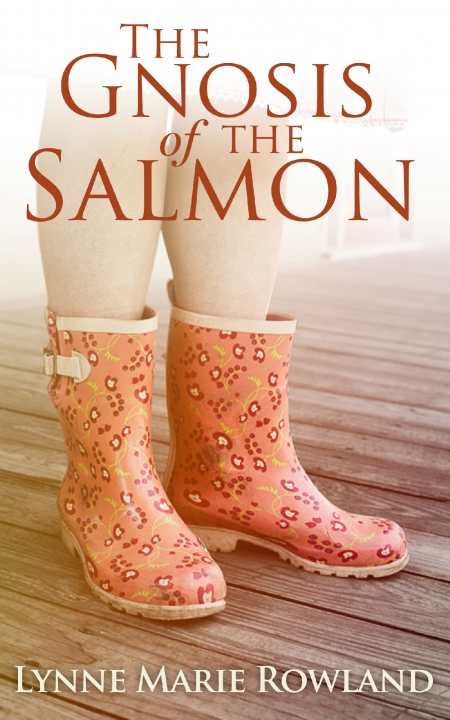
The Gnosis of the Salmon
Rowland takes on the challenge of abuse and forgiveness with writing rich in sensory description and spiritual magic.
A young woman on a courageous journey to learn the truth behind her family’s silences, secrets, and lies uncovers a horrific history of sexual abuse over generations, in Lynne Marie Rowland’s luminous and wise book, The Gnosis of the Salmon. Armed with the sustaining power of story and myth provided by her loving grandfather, Elinor Hugh-Jones must follow the guidance of visions and dreams to unlock the secrets of her own heart as her life hangs in the balance. Rowland, a marketing consultant by day and a writer by night, skillfully mixes ancient Celtic lore, Gnostic Christianity, and teachings from other diverse spiritual paths to create a satisfying and intriguing tale for adult readers who can handle co-existing philosophies and religions.
Elinor’s journey begins when a health crisis signals an urgent need for change. Saddled with a soul-killing corporate job and unable to sustain a satisfying love relationship, she seeks guidance from her Celtic heritage. With its tales of shape-shifters, shamans, and magic, Elinor finds the strength to undertake the hero’s journey and face her inner demons while on a quest to confront her karmic legacy. One of Rowland’s greatest gifts is her ability to describe sensory experiences by bringing moments to life in a delightfully familiar manner. This is evident in her description of the scent of a meadow at night, which has the smell “mostly of mossy secrets and ancient wood, and caterpillars, animals, soil and decay.”
The author also makes manifest what rape victims may hear, subconsciously, long after the traumatic event—the voice of the rapist saying, “I am in you. You will never be free. I am inside you.” And through Elinor’s battles with that voice, and the shadowy character behind it, Rowland offers hope of victory.
The book merits the attention of a proofreader to correct the lack of apostrophes (“we used to fix each other s hair,” “didn t cook,” and “Matthias s”), missing or repeated words (“was Jimmy was my soul mate”), and lack of quotation marks throughout.
Rowland’s novel shines in spite of these errors—the characters, abused and abusers alike, are well fleshed out, and the author does not shy away from the very real dilemma created when one both loves, and hates, another. She takes on the challenge of forgiveness with this simple, yet somehow astounding, truth: “we cannot control the process of forgiveness—we can only invite it.” Rowland’s greatest message cuts beyond the hurt of familial abuse to the heart of healing—it is Elinor’s insight that “what is buried deepest is the love. I guess that is sometimes scarier and harder than the hurt.”
The volume’s title is apt; the salmon, in spite of its valiant battle with the rapids to birth new life, is also going to its death. Similarly, those seeking to end a generational cycle of abuse must face a death of sorts before being reborn into a new life that will leave a positive legacy for the future. Rowland writes: “The Celts understood the need for death of the self. The Neolithic people did too. It is we modern people who have forgotten. The salmon goes to its death with full gnosis.”
Reviewed by
Kristine Morris
Disclosure: This article is not an endorsement, but a review. The publisher of this book provided free copies of the book and paid a small fee to have their book reviewed by a professional reviewer. Foreword Reviews and Clarion Reviews make no guarantee that the publisher will receive a positive review. Foreword Magazine, Inc. is disclosing this in accordance with the Federal Trade Commission’s 16 CFR, Part 255.
